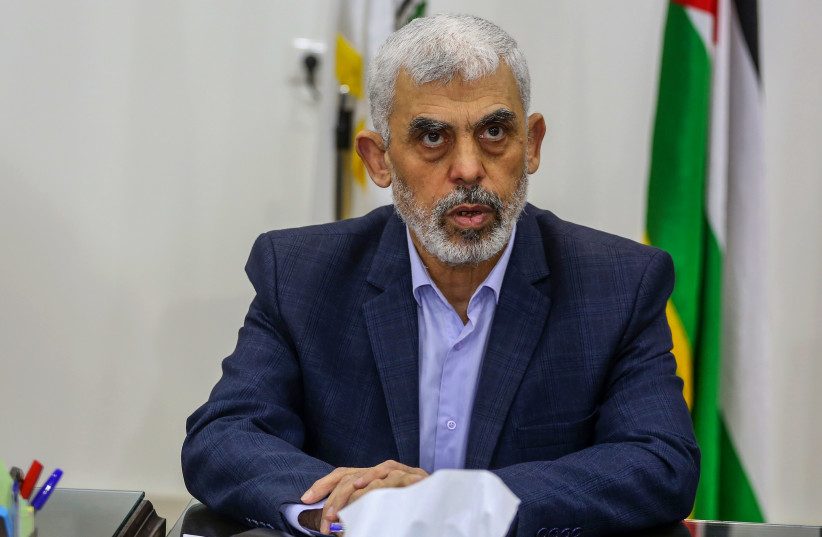Hamas' chief in Gaza Yahya Sinwar is believed to be hiding in tunnels under Khan Yunis, but getting to the terrorist leader will be difficult as he's seemingly surrounding himself with a human shield of hostages, Israeli, US, and Western intelligence and security officials told The Washington Post on Monday.
According to the report, the central challenge in capturing or killing Sinwar will be trying to do so without killing or injuring nearby hostages.
“It’s not about locating him, it’s about doing something” without putting the hostages at risk, a senior Israeli official told the Washington Post.
Sinwar was born in Khan Yunis in 1962. He became infamous for murdering suspected Palestinian collaborators, gaining the nickname "the Butcher of Khan Yunis" and eventually landing in an Israeli prison until he was released in 2011 as part of the deal to release IDF soldier Gilad Schalit from Hamas captivity.
Earlier in the war, Israeli media reported that the defense establishment believed that Sinwar and the commander of Hamas' al-Qassam Brigades, Mohammad Deif, were hiding under Khan Yunis, although, in recent weeks, some reports alleged that the two had fled to Rafah or even into Egypt.

The Elaph newspaper, run by a Saudi-British businessman, reported last week that Sinwar and Deif had managed to escape through a tunnel from Rafah to Egypt. The newspaper additionally claimed that there were eight large tunnels, big enough for cars and small trucks, running between Rafah and Egypt. The report has been rejected by Israeli sources.
The hunt for Sinwar under Gaza
The Washington Post report published on Monday noted that, since the war began, Israeli soldiers have discovered Hamas administrative files, computers, and phone directories indicating various offices located in the network of hundreds of miles of tunnels located under Gaza.
US intelligence analysts are helping Israel with some of the mapping of the tunnel system through the aid of powerful analytic technologies that piece together fragments of information, officials knowledgable about the efforts told the Washington Post. The US analysts have also been helping with analyzing intercepted communications and data from recovered hard drives.
There are no US intelligence personnel on the ground in Gaza and the US is not helping Israel with the day-to-day efforts to find and strike Hamas fighters and facilities, according to the report. When asked if the US was helping Israel fight the war, a former Mossad officer told the Washington Post that "the question itself is offensive."
